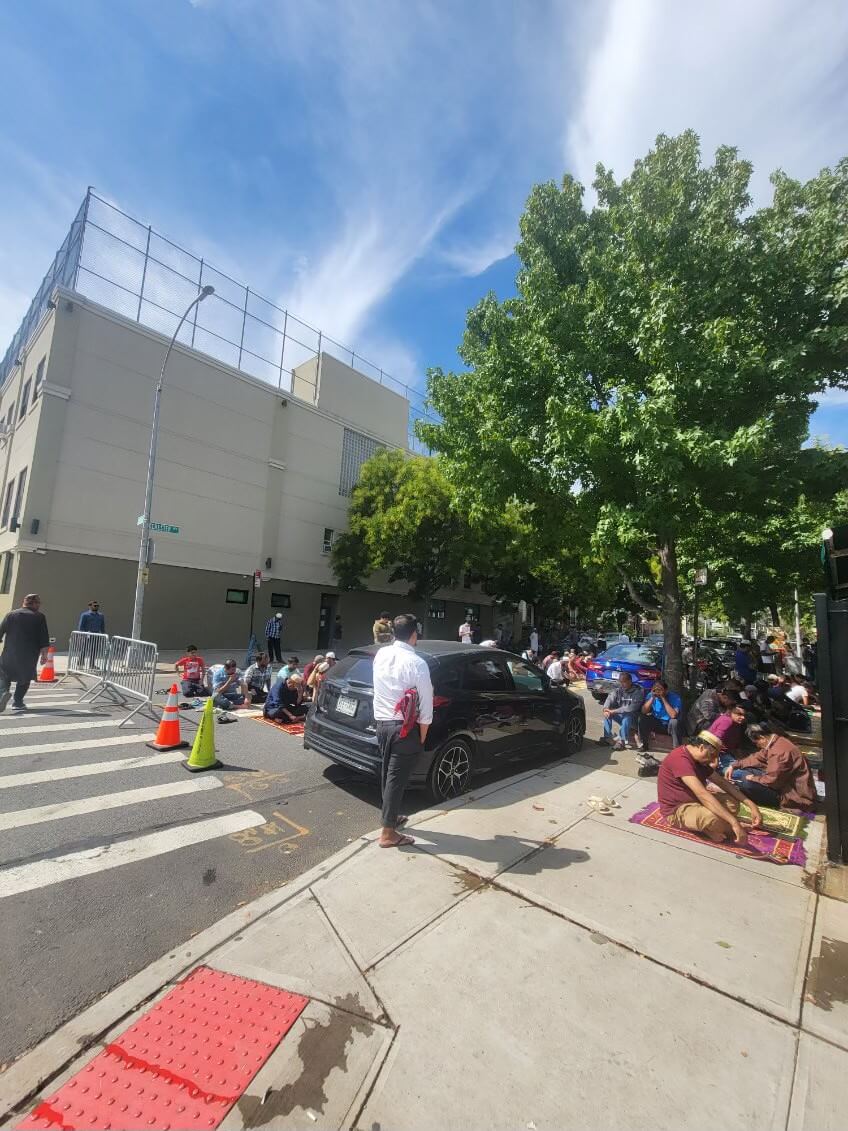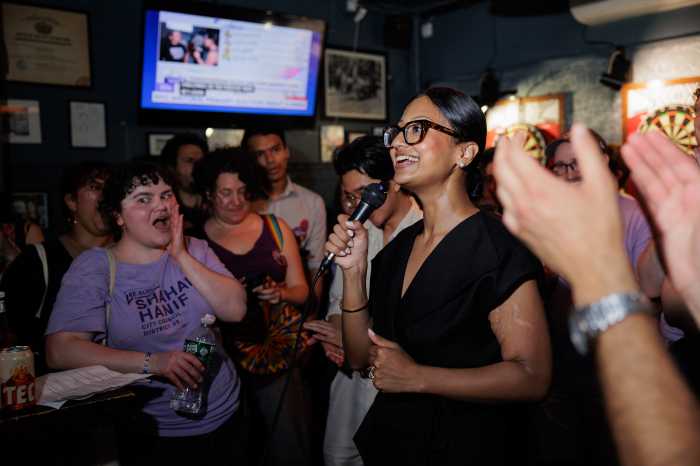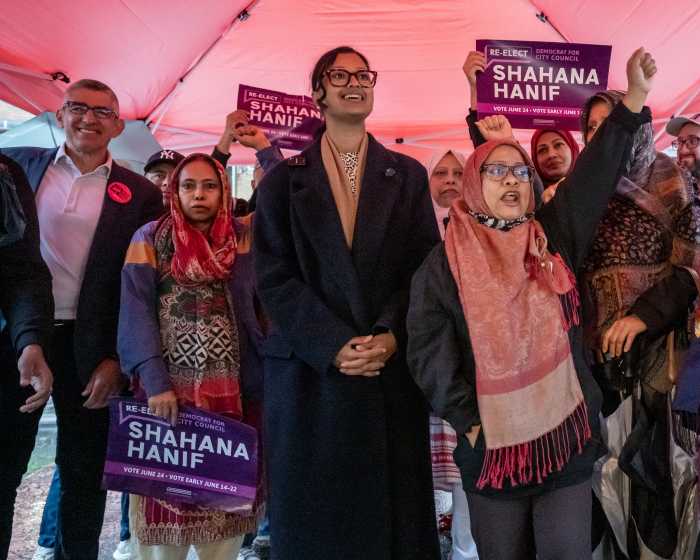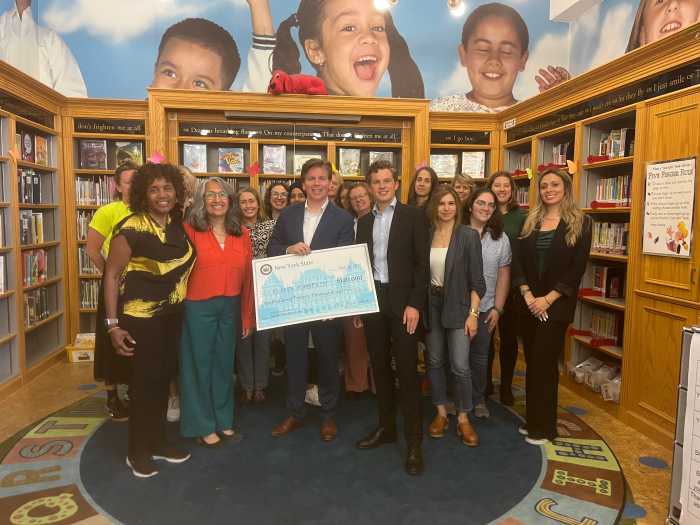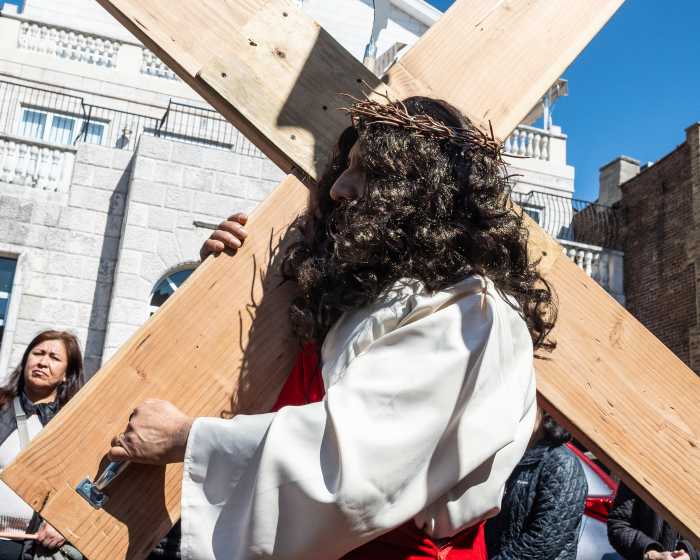A mosque that serves Kensington’s diverse community has taken a leap of faith, where prayers meet pavement and neighbors mingle without barriers.
Every Friday afternoon, worshippers at Masjid Nur Al-Islam gather on the decorated pavement of car-free Chester Avenue to offer their prayers for Jummah. The mosque has secured an official open street in front of its premises for Friday afternoons throughout the year.
“Just like any other spiritual place, the mosque was designed to bring people together and spread peace among the community,” said Monir Rahman, an active member of the mosque.
Masjid Nur Al-Islam has been a place of worship for citizens and a hub for community-building since 1995. Kensington, known as “Little Bangladesh,“ is home to more than 100,000 Bangladeshi immigrants.
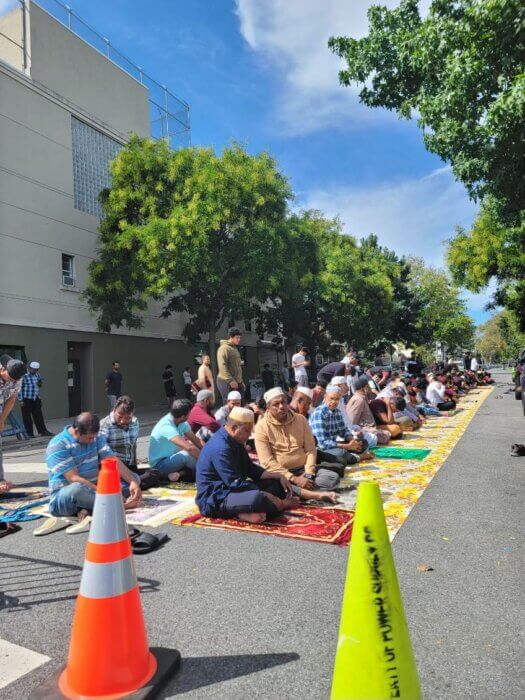
Following the Covid-19 pandemic, the mosque’s congregation grew exponentially but lacked the space to accommodate its worshippers. Thanks to the Department of Transportation, Masjid Nur Al-Islam found an effective way to provide a larger area for prayer.
According to the DOT, the city’s open streets program transforms streets into public spaces, aiming to support economic development, provide educational opportunities and create a sense of community among New Yorkers. One of the core aspects of the program is a full closure of designated streets, allowing for car-free activities while constructing safe gathering spaces.
For Masjid Nur Al-Islam, this has been a game-changer.
The mosque reached out to Council Member Shahana Hanif, who is Bangladeshi-American, in hopes of discussing the opening of Chester Avenue. Hanif did not hesitate to take action, as she represents the neighborhood and has been a vocal advocate for open streets.
“Before I was a council member, I had been very cognizant of the limited open space for pedestrianized corridors in the neighborhood,” she stated.
“This is a working-class community where many people are living in crowded apartments and buildings,” Hanif continued.“The Covid-19 era catalyzed more constituents to understand that we needed more open streets and walkable corridors where the community can come together.”
Prayer is a pillar of Islam, and followers are asked to pray the Jummah prayer every Friday afternoon, generally from noon to 3 p.m. The Jummah prayer is not only a religious obligation but also a social gathering. After prayer, the community members engage in socializing and connecting.
“The open street helps the community grow. We now have an area where people can meet new people, and do so in a neighborhood where they can feel safe, knowing that the street is protected,” said Rahman.
He believes that the open street has encouraged a sense of respect among community members.
“People respect each other. This, in turn, makes the community stronger,” he stated.
While Islam has different expectations for men and women, the Jumma prayer is a duty required of every Muslim. At Masjid Nur Al-Islam’s open street, children and women are welcomed.
“Kids are connected to the mosque, which is what we need in the world right now,” said Rahmad. “It encourages them to understand what values are, to stay away from bad things, and to learn the difference between wrong and right.”
The mosque’s initiatives go beyond religious teachings, including educational programs that address political, social, religious, humanitarian and other issues. The diversity within Masjid Nur Al-Islam’s congregation is a reflection of Kensington’s multicultural identity, with individuals identifying as Southern Asian, African American, Middle Eastern and more.
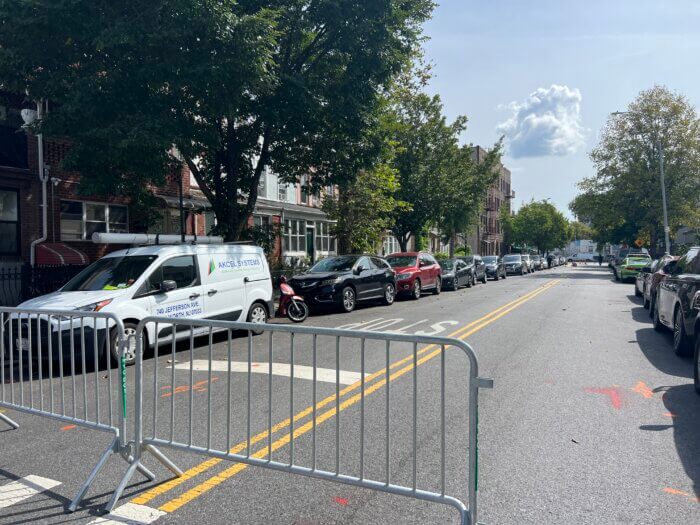
The community remains undeterred even amid inclement weather, showing up rain or shine.
“I’m proud to be a council member that represents a diverse constituency from Kensington, where we have had dozens of open streets,” says Hanif. “And, I’m proud to highlight the multipurpose use of open streets – from people congregating for prayer to young people during dismissal, and even people who are coming to dine on Fifth Avenue.”
As DOT and Hanif actively implement efforts that encourage pedestrian-friendliness, the Kensington Plaza has recently expanded to include Beverly Road, further enforcing their commitment to opening underutilized street space for pedestrian use.
“To be a new council member and address how to tackle climate change through providing more access to open spaces is a joy to see,” said Hanif.
Amid climate change concerns and the evolving needs of urban communities, Masjid Nur Al-Islam and DOT are setting an example.
“Through their collaboration and dedication, they are creating a stronger and inclusive community,” Rahman said, praising their efforts.”And if we can connect people and give them opportunities to engage socially and spiritually, then all is wonderful.”


